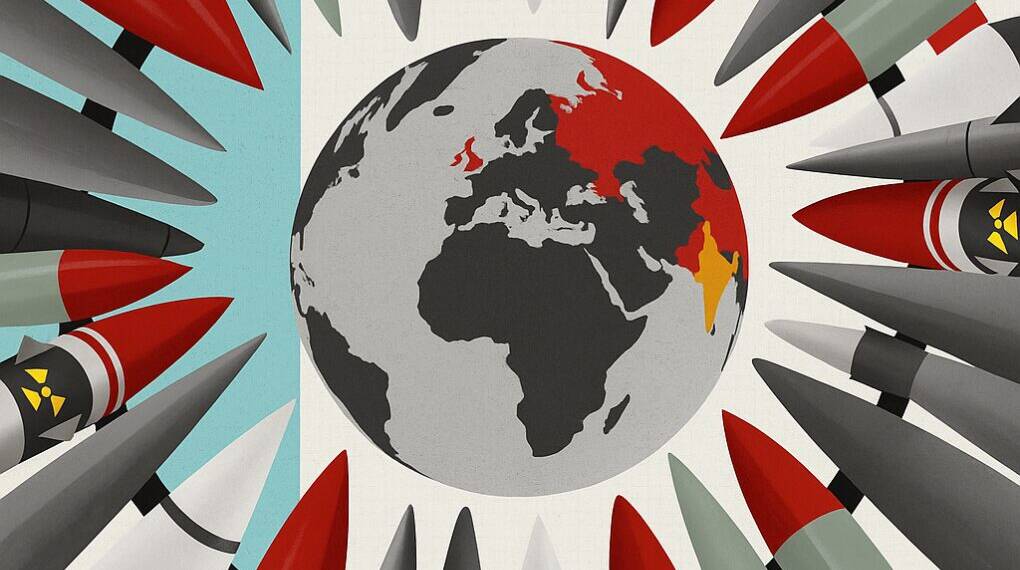Amid the latest flare-up in tensions between Israel and Iran, a sobering lesson from the past demands urgent attention: the global failure to prevent Pakistan from acquiring nuclear weapons. That miscalculation—by the United States, Russia, Israel, Europe, and India—continues to destabilize South Asia. Repeating the same mistake with Iran would be exponentially more dangerous. The world cannot afford to ignore the warning signs.
The Pakistan Precedent: A Global Misstep
Pakistan’s emergence as a nuclear power in the late 20th century was the product of geopolitical distraction, intelligence lapses, and misplaced priorities. The U.S., preoccupied with the Cold War and the Soviet-Afghan conflict, looked the other way. Russia, then the Soviet Union, was too internally weakened to respond effectively. Israel, focused on more immediate regional threats, underestimated the long-term implications of its actions. Europe, distanced by geography, remained largely indifferent. India sounded alarms but lacked the global clout to stop it.
The result: a nuclear-armed Pakistan that became a source of proliferation risk, regional instability, and a haven for militant elements.
Why Iran Is a Far More Dangerous Case?
But Iran is not Pakistan—and its nuclear aspirations represent a far greater threat. While Pakistan’s nuclear posture has largely operated within the framework of deterrence, primarily aimed at India, Iran’s track record suggests a more aggressive and unpredictable trajectory.
Tehran supports and funds a wide range of regional proxies—Hezbollah in Lebanon, the Houthis in Yemen, and propping up Assad in Syria—all while repeatedly threatening Israel’s existence. As the self-proclaimed leader of the Shia world, Iran harbors ambitions of broader Islamic leadership. A nuclear-armed Iran would dramatically increase the likelihood of regional proxy wars escalating into nuclear confrontations, including the terrifying prospect of nuclear weapons being passed to non-state actors.
Compounding the danger is the character of the Iranian regime: ideologically driven, theocratic, and notoriously secretive about its nuclear program. Unlike Pakistan’s more conventional military establishment, Iran’s motivations are deeply rooted in revolutionary ideology and a quest for regional dominance—making it less predictable and significantly more volatile.
The Domino Effect
If Iran goes nuclear, the consequences won’t stop at its borders. It could trigger a chain reaction, pushing countries like Saudi Arabia, Egypt, and Turkey to pursue their own nuclear programs, creating a volatile multi-state arms race in an already fragile region. Gulf nations themselves, though opposed to Iran’s nuclear ambitions, may feel compelled to respond in kind for their own security.
A nuclear-armed Iran could also feel emboldened to expand its support for armed militias and terror networks, believing that its nuclear shield would deter direct retaliation. Every diplomatic or military calculation by the U.S., Israel, or other global powers would then have to factor in the specter of nuclear escalation.
The Window Is Narrow—but Still Open
This is not a call for war, but a call for decisive action. The opportunity to prevent Iran from crossing the nuclear threshold is shrinking, but it hasn’t disappeared. Sanctions alone are insufficient. What’s required is a unified international strategy—credible deterrence backed by a diplomatic pathway that allows Iran to de-escalate without losing face.
Avoiding confrontation may seem like the safer choice now, but continued inaction risks a catastrophe far greater. The world’s failure to prevent Pakistan’s nuclearization was due largely to what wasn’t done. With Iran, inaction would be a willful choice—with consequences that could be far more severe.
The global community—especially the P5 nations, along with Israel and India—missed their chance to prevent Pakistan’s nuclear program. That failure reshaped South Asian security and continues to cast a long shadow. Allowing Iran to follow the same path would be not just a strategic failure, but an act of global negligence.
History has already shown us the cost of ignoring nuclear proliferation. This time, the world must respond—before it’s too late.








